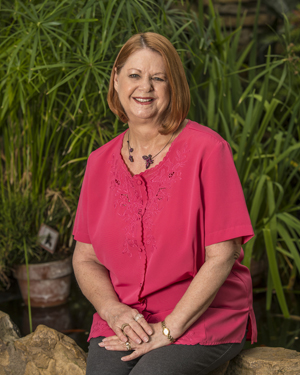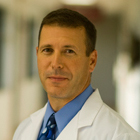 A terrible car accident left Susan Reinders at a loss for sleep – literally. Even years after the traumatic event, damage to her facial bones made it difficult for her to breathe through her nose, making it nearly impossible for her to get a good night’s sleep.
A terrible car accident left Susan Reinders at a loss for sleep – literally. Even years after the traumatic event, damage to her facial bones made it difficult for her to breathe through her nose, making it nearly impossible for her to get a good night’s sleep.
In fact, a sleep study at the Mississippi Valley Sleep Disorder Center, located at 3385 Dexter Court in Davenport, revealed that her severe sleep apnea was causing her to stop breathing up to 91 times per hour.
Douglas W. Dvorak, MD, an ear, nose and throat surgeon with Davenport-based ENT Professional Services at the Mississippi Valley Surgery Center complex, immediately prescribed her a continuous positive airway pressure (CPAP) machine. The machine increases air pressure in the throat so the airway doesn’t collapse when sleep apnea patients breathe in. Although this type of machine works for many patients, Susan didn’t like it.
“I could hardly breathe through my nose and I could not get used to the CPAP at all,” said Susan. “It felt like forced air and I couldn’t stand it.”
She spoke to Dr. Dvorak about her challenges and was pleasantly surprised to learn there were other options available for patients who have a hard time tolerating the CPAP machine.
“Many people who suffer from sleep apnea don’t want to do a sleep study because they don’t want to end up with a CPAP machine. But those people should know that there are other treatment options available,” said Dr. Dvorak. “It’s much better to address the problem rather than ignore it and be forced to deal with the health consequences.”
Lack of sleep is associated with high blood pressure, heart failure, and a host of other conditions.
“Some serious health problems – things like obesity, heart attack, stroke, and depression – can be both the cause and the effect of insufficient sleep,” said Dr. Dvorak. “Too little sleep can also disrupt the hormones that regulate appetite. Decreased sleep increases hormones that stimulate appetite, often leading to increased weight gain, which can lead to more severe sleep apnea.”
To help address Susan’s sleep problems, Dr. Dvorak recommended a combination of surgical procedures at the Mississippi Valley Surgery Center, a multi-specialty outpatient surgery center serving the Quad Cities. Dr. Dvorak frequently treats patients at the Mississippi Valley Surgery Center because the facility specializes in outpatient procedures and is staffed by a full team of experts trained in the latest, proven techniques that lead to better outcomes and a faster recovery.
For Susan, Dr. Dvorak recommended three procedures: a tonsillectomy, uvulopalatopharyngoplasty (UPPP or UP3), and a turbinate reduction.
“The types of procedures we recommend will always depend on the person’s given anatomy and their specific challenges,” said Dr. Dvorak. “As a result, it’s not uncommon to perform a combination of procedures simultaneously.”
After removing Susan’s tonsils, Dr. Dvorak performed the UPPP, a procedure that removes excess tissue in the throat to make the airway wider. It’s one of the most commonly performed procedures for sleep apnea. Finally, Dr. Dvorak reduced the size of Susan’s turbinates – the three long, narrow and curled bone shelfs (shaped like an elongated sea-shell) that protrude into the breathing passage of the nose.
“[My experience at] the Surgery Center was great,” said Susan. “The nurse on duty was very attentive and truly wonderful. I buzzed her about once an hour for her to take me for a walk because I was tired of lying there. She was great.”
Dr. Dvorak shared similar praises.
“That’s one of the great things about the Surgery Center,” he said. “We get comments all the time from our patients about how great the staff is. They are also very efficient, which is important because procedures almost always start on time.”
For Susan, the results of her procedures were dramatic.
“I can breathe a lot better through my nose, which is great because before I probably never breathed through my nose,” said Susan, who lost about 50 pounds leading up to the surgery.
In addition, her follow up sleep study revealed that she only stopped breathing about 11 times per hour. While this is still higher than what Dr. Dvorak would like to see but it’s a huge improvement.
“Now that we’ve opened her airways, she feels much more rested. She is going to work on losing more weight to see if this cures the mild residual apnea. If not, she should do much better with CPAP at a lower pressure now.” Dr. Dvorak said. “In many cases where apnea does not start out being so severe prior to surgery, neither additional weight loss nor CPAP machine is necessary after surgery.”
There are additional procedures that Dr. Dvorak also performs to address collapse of the tongue base and lower parts of the throat when indicated.
If you or someone you know suffers from sleep apnea, remember that there are alternatives to the CPAP machine. Reach out to Dr. Dvorak to learn more about your options.
ENT Professional Services is located at 3385 Dexter Court in Davenport, Iowa. For more information about Dr. Dvorak and the other physicians at ENT Professional Services, visit http://entprofessional.com/ or call 563-359-1646.
 |
| Douglas W. Dvorak, MD |
For more information about the Mississippi Valley Surgery Center, visit www.mvhealth.net or find us on Facebook at www.facebook.com/MississippiValleySurgeryCenter.
Photo Caption: Susan Reinders, guest services clerk at Davenport’s Vander Veer Botanical Park, recently had surgery at Mississippi Valley Surgery Center to help her overcome her sleep apnea.
